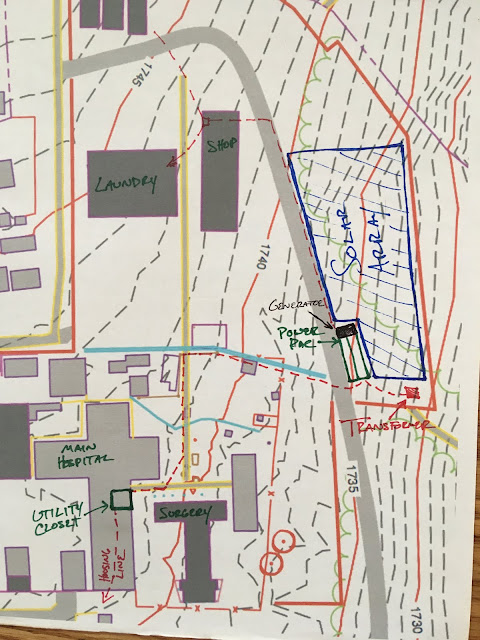When was the last time you experienced or did something for the first time?
For our family, this past year has been filled with many first-time experiences. It was our first time moving to another country (France) then yet another (Burundi). It was Eunice’s first time learning to drive stick shift (awesome!). It was my first time getting a speeding ticket in another country, while in France (not so awesome). It was Toby’s first time attending a French preschool, where French was the only language spoken around him all day. It was Amos’s first birthday shortly followed by his first steps walking on his own. And the list goes on…
For me, specifically in the context of the hospital here in Burundi, first time experiences are a daily thing. Such experiences typically come in the form of an operation I’ve never performed (that would be typically done by other surgical specialists in the US) or in a disease I’ve never treated or managed before (like osteomyelitis in children). Some of such first-time operations these past 3 months for me have included a cleft palate repair, an excision of gingival mass, a hip replacement, and an ectopic pregnancy.
Before getting to Burundi, I knew I would be in a radically different hospital environment, and I expected to be learning a lot of new information outside the scope of my training and background in general surgery. With a few months now under my belt, I can attest that there is never a day that goes by where I am able to say to myself, "Self, you knew how to take care of every patient that you encountered today." Fortunately, there is a more experienced and well-seasoned surgeon, Jason Fader, available to mentor us and guide us through the foreign and unknown.
Still, even for things I know and was trained how to do, the pre-operative workup, the intra-operative steps, and post-operative management are totally different, and I am essentially having to reprogram my mind how to think. For example, even a simple biopsy to determine whether a mass is benign or malignant is something which we nearly always obtain in the US to guide our management for surgical diseases. Here, pathology services are not available, and if we think a biopsy would be helpful, we can get results in a few weeks by sending a tissue sample back with a short-term visitor or teammate who is heading to the US in the near future. As another example, we have no CT or MRI imaging, so as a result, we rely heavily on physical exam and ultrasound.
Having so many first times in the hospital context can be challenging and exciting at times, and can bring a sense of great accomplishment. Other times, it can trigger a sense of feeling overwhelmed, inadequate, or helpless. In the medical world, where competence and performance are valued and praised, you would be hard-pressed to find general surgeons (and other physicians) admitting to feelings of inadequacy, which would be a sign of weakness. Conversely, in the context of a mission hospital in a low-resource setting, I would say that you would be hard-pressed to find missionary doctors who are not experiencing inadequacy or helplessness at some level. And I think there is Biblical truth to be found in this. I am reminded of the 2 Corinthians 12: 9-10, when Paul writes:
But he said to me, “My grace is sufficient for you, for my power is made perfect in weakness.” Therefore I will boast all the more gladly of my weaknesses, so that the power of Christ may rest upon me. For the sake of Christ, then, I am content with weaknesses, insults, hardships, persecutions, and calamities. For when I am weak, then I am strong.
I know that I don’t have all the answers, and that there is a steep learning curve of working in a mission hospital, which keeps me on my toes and keeps me humble. Though experiencing many first times is not comfortable, it is in this state that I am forced to turn to Jesus and to rely on Him, and this is good.



































